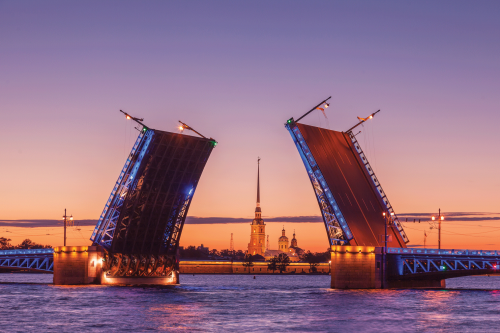Unfinished business
1 April 2020
Achieving a just and equal world for all

Many of us know the experience of having an unfinished project lurking somewhere in the back of our consciousness, if not in our immediate field of vision. Whether a household repair or renovation, a craft project, a car or bike restoration or a jigsaw puzzle gathering dust in the corner, the things we start don’t always get finished.
This is true not just for our individual lives, but for whole communities. We could easily see the project of gender equality as one such unfinished project both here in Australia and throughout the world. We have started the project, and in some places, we are moving along quite well, but in others, we are quite stuck. We have not yet achieved genuine equality in any universal sense. The UN Secretary-General, António Guterres, has said that, “Achieving gender equality and empowering women and girls is the unfinished business of our time, and the greatest human rights challenge in our world.”
International Women’s Day, celebrated on 8 March, is a reminder of our big unfinished project. It’s a day on which we are invited to celebrate the many achievements of women in diverse spheres of activity, whether social, political, economic or cultural. It also creates an opportunity for us to consider how we can take action to create a more gender-equal world both here in Australia and around the globe.
This year’s International Women’s Day campaign theme is #EachforEqual and focuses on the idea that an equal world is an enabled world and that all of us, individually and collectively, can help create this world. The world-renowned feminist activist Gloria Steinem has said that, “The story of women’s struggle for equality belongs to no single feminist nor to any one organisation but to the collective efforts of all who care about human rights.” If we care about human rights, we must care about gender equality and act to bring it about.
Together, we can promote the equal rights of men and women in our offices and boardrooms, in the media, in sports coverage or government representation. Individually, how we think, speak and act in our own lives can reinforce gender stereotypes or challenge them; can enact or fight bias; can narrow or broaden perceptions; and limit or improve life for individuals and communities. Are we for equality or for the status quo?
In Australia we have collectively made hard-won progress over many years in areas as diverse as giving women the right to vote and stand for parliament; the right to continue working after marriage; and legislating for equal pay. However, Australia currently ranks 48th in the world in terms of the representation of women in politics; one in two mothers report experiencing workplace discrimination as a result of their pregnancy, parental leave or on return to work; and the average full-time weekly wage for a woman is 15.3 per cent less than a man’s.
Tragically, one in two Australian women has experienced sexual harassment during their lifetime, while one in three has experienced physical or sexual violence. On the domestic scene, women spend almost twice as many hours each day performing unpaid care work compared to men and account for 68 per cent of primary carers. Inequalities remain.
Worldwide, as the United Nations Human Rights Office reminds us, millions of women continue to experience discrimination through laws and policies that prohibit equal access to land, property and housing, while gender-based violence affects at least 30 per cent of women globally. Economic and social discrimination results in fewer and poorer life choices for women, rendering them vulnerable to trafficking.
We could go on to talk about the risk of girls marrying in childhood, the 200 million girls who have been subjected to female genital mutilation, or that only 52 per cent of women who are married or in a union can freely make their own decisions about sexual relations, contraceptive use and health care.
We have a way to go to create a just and equal world in relation to gender. So, the question remains, what shall we do about our unfinished project, the unfinished business of our time?
The International Women’s Day theme, #EachforEqual, is not just for one day, it is a year-long campaign in which we can participate through individual and collective action. Actions as simple as calling others to engagement through sharing on social media (see suggestions on the International Women’s Day webpage www.internationalwomensday.com) or organising a discussion about gender bias in the workplace. It could be providing training for people on how to identify and address various forms of bias; or conducting an audit of behaviour in the home and family. What tasks get automatically allocated based on gender? Who is doing the emotional work of family life? What barriers prevent women and girls from achieving their full potential?
In terms of the global situation, we could ask how we can learn more about the plight of women and girls around the world, and how our actions might help them — for example, evaluating our support for aid and development programs based on their gender equity credentials or directly sponsoring projects that focus on girls’ education and empowerment.
Our gender equality project is a human rights issue that needs finishing, or at least significant progress. Let’s get on with it.

Comments
No comments yet - be the first.